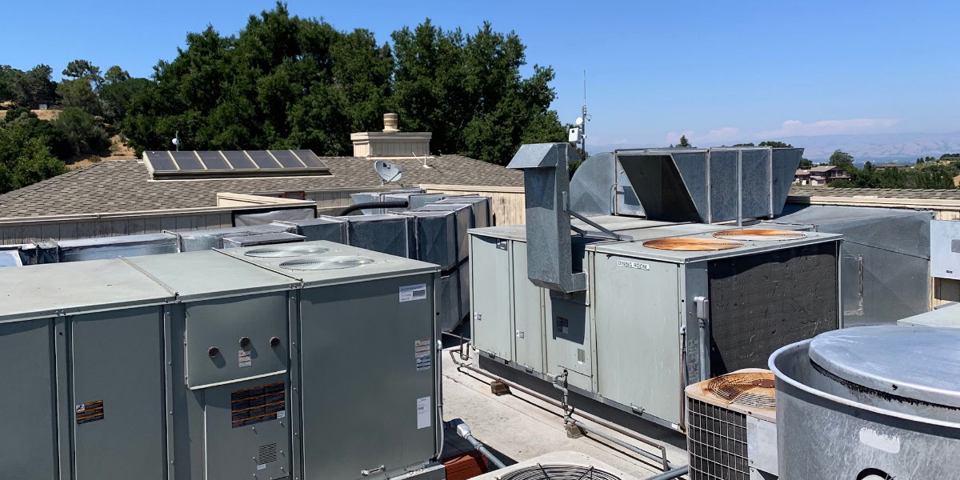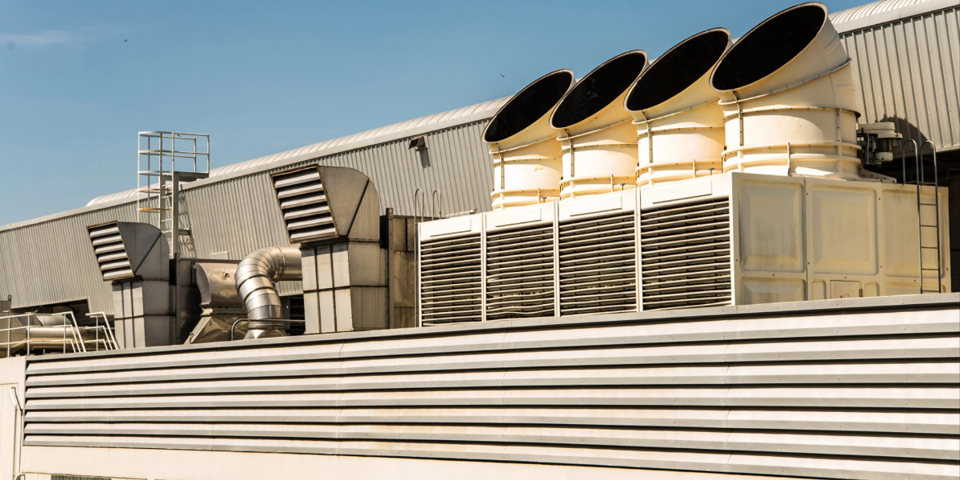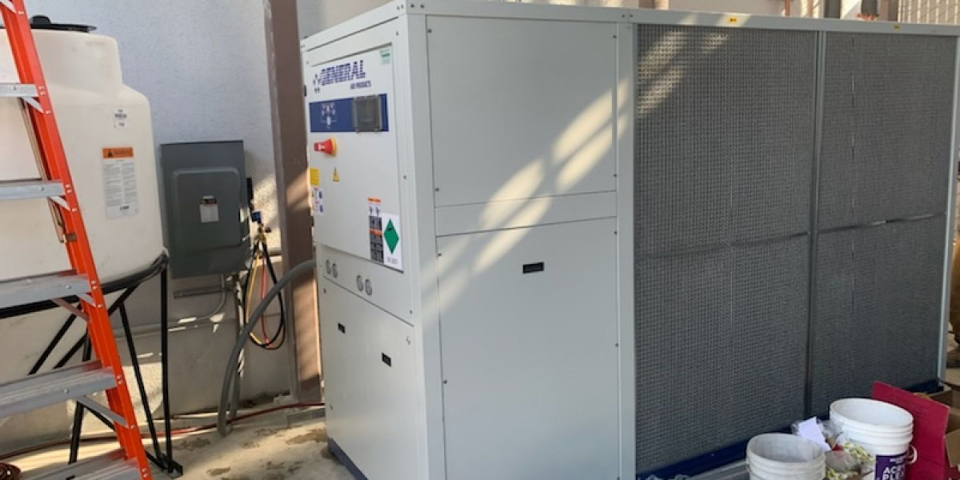Commercial chillers play a vital role in industries ranging from hospitality to manufacturing, helping to regulate and maintain the desired temperature for various processes. These complex machines require regular maintenance to ensure optimal performance and longevity. In this comprehensive guide, we will explore the importance of preventive maintenance for commercial chillers, outlining the steps and benefits of regular maintenance and providing a suggested maintenance schedule.
Importance of Proactive Maintenance
Preventive maintenance is the key to avoiding unexpected breakdowns and costly repairs. By conducting scheduled inspections and necessary repairs, businesses can maximize chiller uptime while minimizing downtime and associated financial losses. Additionally, regular maintenance helps maintain energy efficiency, preventing unnecessary energy consumption and reducing utility costs. Keeping chillers well-maintained also contributes to the overall functioning and safety of the facility, reducing the risk of accidents and ensuring compliance with industry regulations.
Steps for Regular Preventive Maintenance
To ensure the optimal performance and longevity of commercial chillers, it is essential to follow a well-defined maintenance routine. Below, we outline the steps involved:
Inspection and Cleaning
Regular inspections should be conducted to identify any signs of wear and tear, leaks, or contamination. This includes checking components such as condenser coils, evaporator coils, fans, belts, and filters for damage or blockages. Thorough cleaning of these components ensures optimal heat transfer and reduces strain on the chiller’s system.
Lubrication and Belt Tensioning
Lubricating moving parts and ensuring proper belt tension are crucial steps in preventive maintenance. Insufficient lubrication can cause excessive friction, leading to component failure, while loose belts can result in decreased efficiency and excess wear.
Refrigerant Level and Quality Check
Maintaining the appropriate refrigerant level is vital for the efficient operation of a chiller. Periodic checks and adjustments should be made to ensure that refrigerant levels are within the manufacturer’s specifications. Additionally, monitoring refrigerant quality helps identify potential issues such as leaks or contamination.
Electrical System Inspection
Electrical systems play a significant role in chiller operation. Regular inspection of electrical connections, wiring, and control panels helps identify any loose connections, corrosion, or faulty components that may contribute to system malfunctions.
Performance Testing and Calibration
Regular performance testing and calibration ensure that the chiller is operating within the specified parameters. This includes measuring and adjusting temperature differentials, flow rates, and pressure levels to maintain peak performance.
Benefits of Regular Preventive Maintenance
Implementing a regular preventive maintenance program for commercial chillers offers numerous benefits. The following are some of the key advantages:
Increased Energy Efficiency
Regular maintenance optimizes chiller efficiency, ensuring that it operates at its highest performance level. This not only reduces energy consumption but also minimizes operating costs.
Extended Lifespan
Proactive maintenance maximizes the lifespan of commercial chillers. By identifying and rectifying issues early on, businesses can avoid costly repairs and replacements, saving both time and money.
Enhanced Reliability
Chillers that receive regular preventive maintenance are less likely to experience unexpected breakdowns. This reduces downtime and helps businesses maintain uninterrupted operations.
Safety Compliance
Maintaining chillers in accordance with manufacturer guidelines and industry regulations ensures a safe working environment. Regular inspections and maintenance help identify potential safety hazards and mitigate risks.
Suggested Maintenance Schedule
While the specific maintenance needs of commercial chillers may vary depending on factors such as model, age, and usage, a general maintenance schedule is recommended. We suggest the following schedule as a starting point:
Monthly Tasks
- Check and clean condenser coils
- Inspect and clean evaporator coils
- Inspect and clean fans and belts
- Check and adjust refrigerant levels if necessary
Quarterly Tasks
- Lubricate moving parts
- Inspect electrical connections and wiring
- Conduct performance testing and calibration
Annual Tasks
- Perform a comprehensive inspection of all components
- Check and clean filters
- Conduct thorough refrigerant quality check
- Evaluate system efficiency and consider improvements
It is important to note that this suggested schedule should be tailored to the specific needs of individual chillers, and professional guidance from a commercial refrigeration specialist should be sought.
Challenges and Considerations
Implementing a preventive maintenance program for commercial chillers may come with its own set of challenges. Some of these challenges include:
Cost
Regular maintenance may require upfront investments, such as hiring qualified professionals or purchasing specialized equipment. However, it is crucial to view these costs as long-term investments that contribute to cost savings and business continuity.
Operational Impact
Depending on the size and complexity of the chiller system, performing maintenance tasks may cause temporary disruptions to operations. Planning maintenance activities during off-peak or scheduled downtime can help minimize these impacts.
Staffing and Expertise
Having skilled technicians knowledgeable about chiller systems is essential. If businesses do not have in-house expertise, partnering with reliable commercial refrigeration specialists can provide the necessary knowledge and skills for effective preventive maintenance.
Environmental Considerations
Commercial chillers often use refrigerants that may have environmental implications. It is important to stay informed about evolving regulations and choose sustainable refrigerants that minimize harm to the environment.
Regular preventive maintenance is of critical importance for commercial chillers to ensure optimal performance, extend the lifespan of the system, and minimize downtime and associated costs. By following a comprehensive maintenance routine and adhering to a suggested maintenance schedule, businesses can maximize energy efficiency, enhance reliability, maintain safety compliance, and ultimately, secure long-term success. Partnering with a reliable commercial refrigeration specialist, such as R&R Refrigeration, can provide the expertise and support necessary for effective preventive maintenance. Remember, investing in preventive maintenance is an investment in the future of your commercial chiller system.
Frequently Asked Questions about Commercial Chillers
What are the consequences of neglecting preventive maintenance for commercial chillers?Neglecting preventive maintenance can lead to various issues, including decreased energy efficiency, increased operating costs, frequent breakdowns, shortened lifespan of the chiller, safety hazards, and non-compliance with industry regulations. The financial and operational costs associated with reactive repairs and replacements are typically much higher than proactive preventive maintenance.
How can preventive maintenance increase energy efficiency?Regular maintenance tasks, such as cleaning condenser coils, lubricating moving parts, and adjusting refrigerant levels, all contribute to chiller efficiency. When the chiller operates optimally, it requires less energy to achieve the desired cooling effect, resulting in reduced energy consumption and lower utility costs.
Can I perform preventive maintenance on my own, or do I need to hire professionals?While some basic maintenance tasks can be performed by in-house staff, it is advisable to hire professionals for more complex procedures. Qualified technicians have the expertise and specialized equipment necessary to ensure comprehensive maintenance and avoid potential risks.
How often should I schedule maintenance for my commercial chiller?We recommend a monthly, quarterly, and annual maintenance schedule as a starting point. However, the frequency may vary depending on factors such as the chiller model, age, and usage. Consult with a professional commercial refrigeration specialist to determine the appropriate schedule for your specific chiller.






